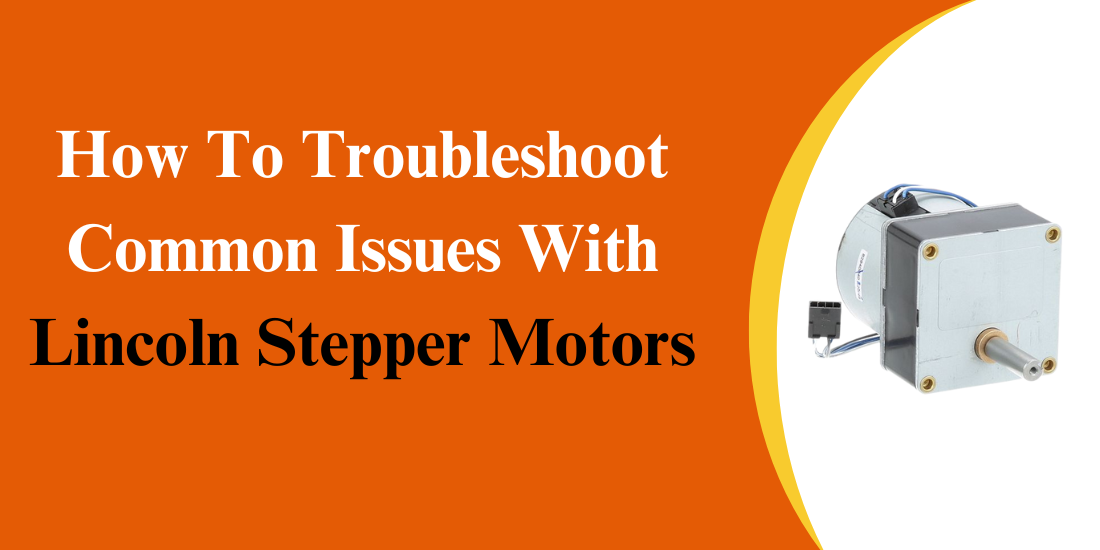
Lincoln stepper motors are a crucial component in many commercial restaurant equipment applications, providing precise and reliable motion control. However, even with their durability, stepper motors can encounter various issues that can disrupt operations. This comprehensive guide will delve into common problems associated with Lincoln stepper motors and offer effective troubleshooting strategies to minimize downtime and ensure optimal performance.
Understanding Lincoln Stepper Motors
Lincoln stepper motors are designed to convert electrical pulses into precise mechanical motion, providing accurate positioning and control. The stator, which contains the windings, generates the magnetic field necessary for operation. The rotor, often fitted with permanent magnets, responds to this magnetic field to produce rotational movement. The driver plays a crucial role by regulating the current flow through the stator windings, thus controlling the motor’s speed and direction. Together, these components ensure that the stepper motor delivers reliable and precise performance.
Common Issues and Troubleshooting Steps for Lincoln Stepper Motors
Here are the common issues and troubleshooting steps for Lincoln stepper motors:
- Overheating
Causes: Excessive load, inadequate cooling, incorrect wiring, or prolonged operation.
Troubleshooting:
- Reduce the load on the motor if possible.
- Ensure proper airflow to the motor, using fans or heat sinks if necessary.
- Verify that the motor is wired correctly and securely.
- Monitor the motor’s temperature and take appropriate action if it exceeds the specified limit.
- Vibrations and Step Loss
Causes: Mechanical resonance, improper installation, incorrect driver settings, or worn-out components.
Troubleshooting:
- Check for loose connections or misalignments in the mechanical setup.
- Adjust the driver settings, such as current, acceleration, and deceleration.
- Inspect the motor for signs of wear and tear, such as worn-out bearings or damaged gears.
- Consider using dampers to reduce vibrations.
- Noise Generation
Causes: Electrical noise, mechanical noise, or misalignment.
Troubleshooting:
- Check for loose connections or damaged components in the electrical system.
- Ensure proper grounding and shielding to minimize electromagnetic interference.
- Inspect the motor for mechanical issues, such as worn-out bearings or misaligned gears.
- Adjust the mechanical setup to reduce noise.
- Motor Stalling and Inaccurate Positioning
Causes: Incorrect wiring, inadequate power supply, incorrect driver settings, or mechanical issues.
Troubleshooting:
- Verify the wiring connections and ensure they match the motor’s specifications.
- Check the power supply to ensure it meets the motor’s requirements.
- Adjust the driver settings, such as motor current, acceleration, and step pulse width.
- Inspect the mechanical setup for any obstructions or misalignments.
- Encoder or Sensor Issues
Causes: Malfunctioning encoders or sensors, loose connections, or power supply problems.
Troubleshooting:
- Inspect the encoder or sensor for physical damage or contamination.
- Verify the connections and ensure they are secure.
- Check the power supply to ensure it meets the encoder or sensor’s requirements.
- If necessary, replace the faulty encoder or sensor.
Lincoln Stepper Motors Maintenance Tips
To minimize downtime and ensure optimal performance, regular maintenance is essential. Here are some preventive maintenance tips:
- Regular Inspections: Conduct periodic inspections to check for signs of wear, damage, or contamination.
- Cleaning: Clean the motor and surrounding area to remove dirt and debris that can affect performance.
- Lubrication: Lubricate moving parts according to the manufacturer’s recommendations.
- Environmental Considerations: Ensure the motor is operating in a suitable environment, avoiding excessive heat, humidity, or vibration.
By understanding common issues and implementing effective troubleshooting strategies, you can significantly reduce downtime and maintain the optimal performance of your Lincoln stepper motors. Regular maintenance and preventive measures are also crucial to prolong the lifespan of these essential components in commercial restaurant equipment.







